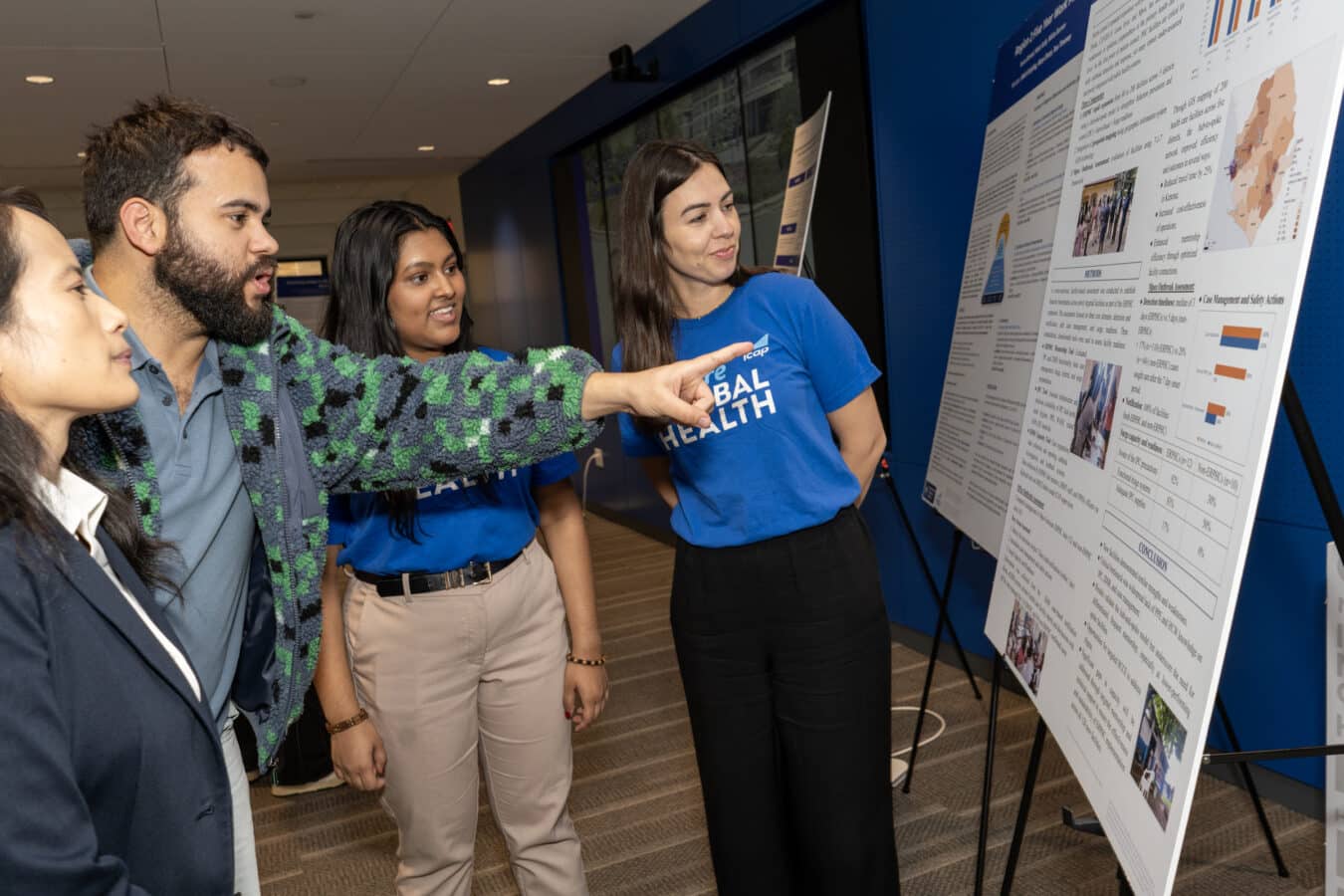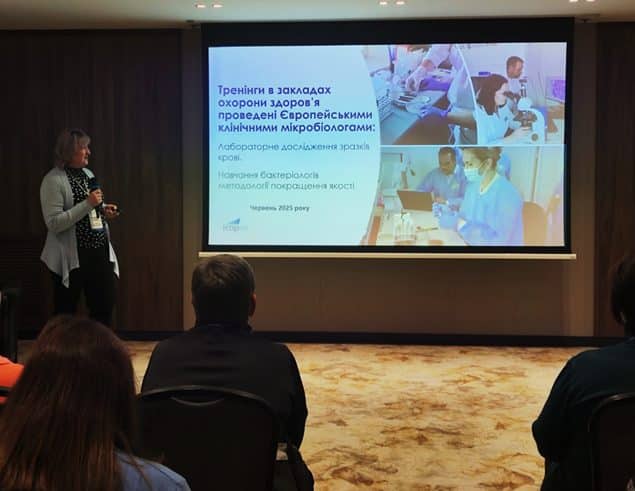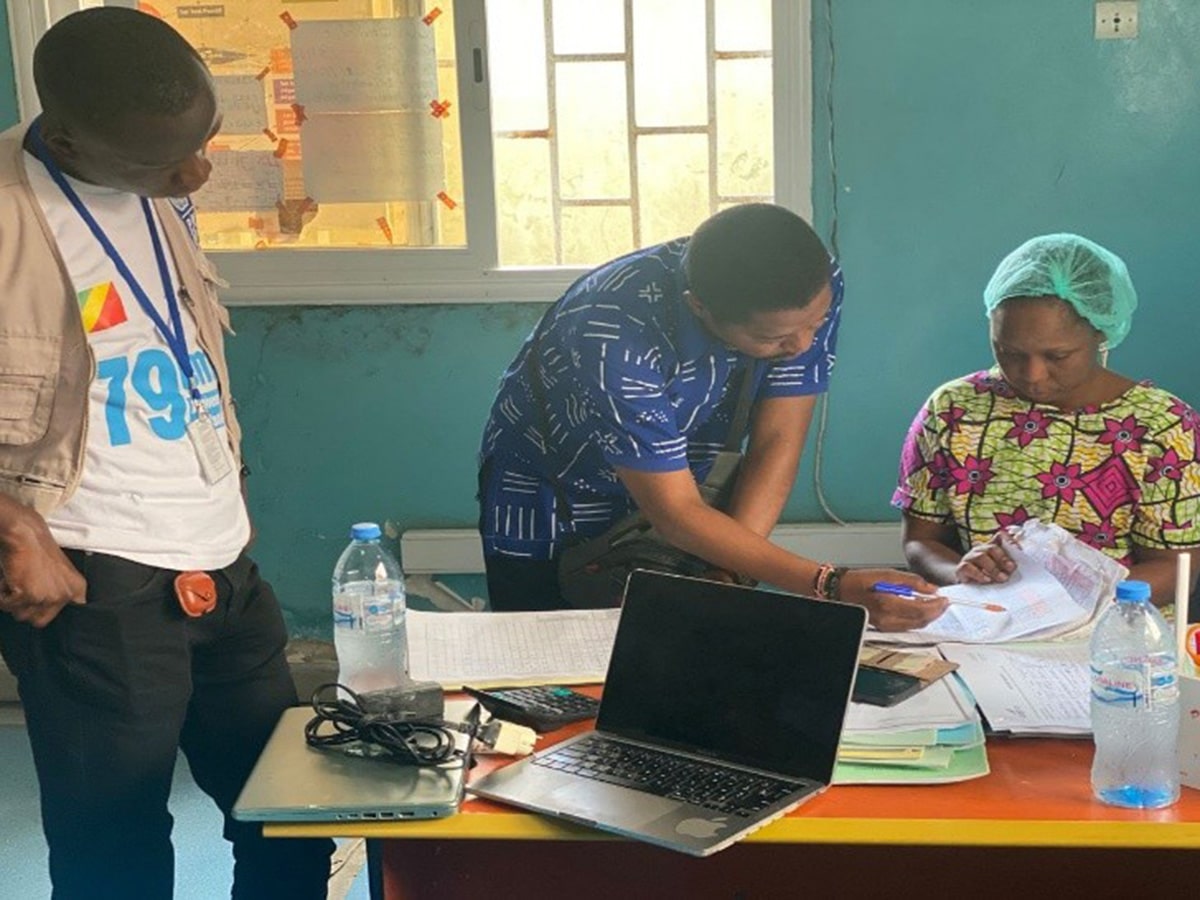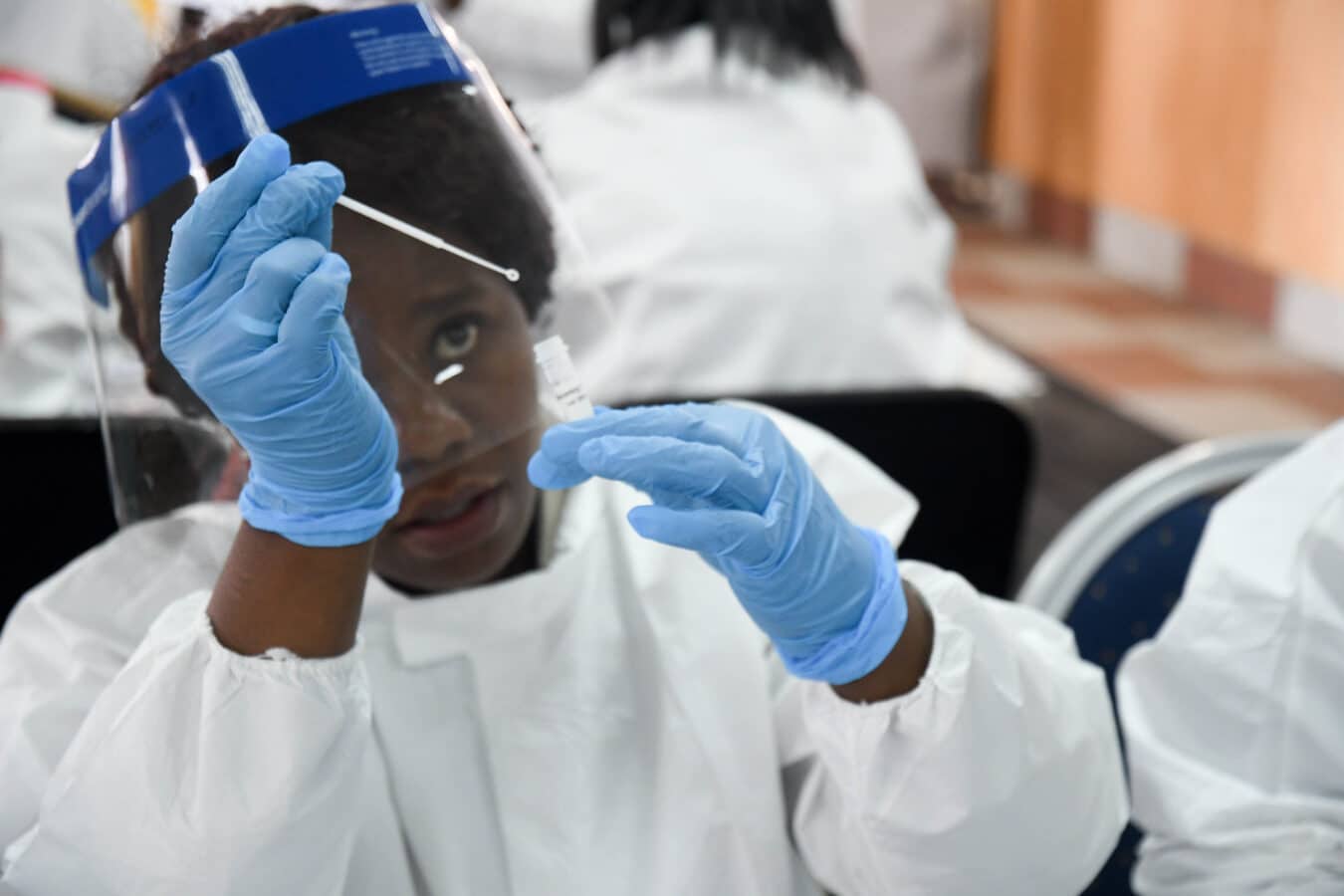Despite the availability of effective antiretroviral drugs for prevention of mother-to-child HIV transmission (PMTCT) and national PMTCT program, more than 6,000 children a year in Kenya acquire HIV during pregnancy, labor, or breastfeeding. If these children are not promptly diagnosed and rapidly initiated on appropriate care and treatment, they are likely to succumb to HIV within just a few years. The challenge for the health system is how to identify such children in an efficient and effective way, and to ensure that they are started on life-saving antiretroviral therapy.
In line with national efforts in Kenya, ICAP supports the testing of all babies born to HIV-infected mothers, six weeks after delivery when they are brought to health facilities for routine immunizations. Diagnosis of HIV in young children is dependent on the use of a special PCR (polymerase chain reaction) test that detects the presence of HIV in the blood, a test that is only available to the public at the laboratories in Nairobi and Kisumu. A well-functioning system should start with obtaining dry blood spot samples from children. The specimens would then be transported to laboratories, and test results would be returned to the source health facility, which would in turn provide the test results to mothers and families. Should the test prove the child is HIV-infected, the facility would start the appropriate care and treatment.
But delivering these test results remains a challenge in this required cascade of events, particularly for health facilities that are located in hard-to-reach rural areas. Combining laboratory technology with mobile phone technology, the availability of a short message service (SMS) printer at such facilities offers a solution to this challenge.
Using SMS, a feature more commonly found in mobile devices, the SMS printer essentially works similar to a mobile phone. The printer transmits a PCR test result in moments from the central laboratory to the health facility, where it is automatically printed out. Once received by the health facility, the assigned health care worker transcribes the results to the patient’s file and HIV-exposed infant register awaiting collection by the mother on the appointment date. If the test is positive and the mother does not turn up for the appointment, the nurse contacts her via mobile phone. Mothers without mobile phones are tracked down by peer educators.
Working with Clinton Foundation, which provides the machines, ICAP has installed SMS printers in 20 rural health facilities in Kenya and worked on establishing the process for recording and acting upon such results. Tests that took as long as six weeks now can be done in as little as two weeks. This has subsequently reduced the time it takes to begin treatment for HIV-infected children.








